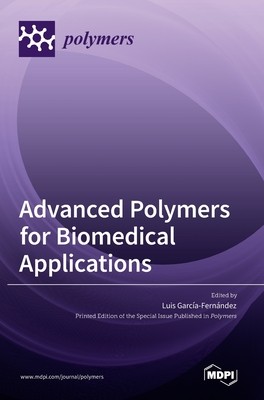
- We will send in 10–14 business days.
- Publisher: MDPI AG
- ISBN-10: 3036546146
- ISBN-13: 9783036546148
- Format: 17 x 24.4 x 3.3 cm, hardcover
- Language: English
- SAVE -10% with code: EXTRA
Advanced Polymers for Biomedical Applications (e-book) (used book) | bookbook.eu
Reviews
Description
Polymers are the largest and most versatile class of biomaterials, being extensively applied for therapeutic applications. From natural to synthetic polymers, the possibilities to design and modify their physical-chemical properties make these systems of great interest in a wide range of biomedical applications as diverse as drug delivery systems, organ-on-a-chip, diagnostics, tissue engineering, and so on.
In recent years, advances in the synthesis and modification of polymers and characterization techniques have allowed the design of novel biomaterials as well as the study of their biological behavior in vitro and in vivo.
The purpose of this Special Issue is to highlight recent achievements in the synthesis and modification of polymers for biomedical applications for final applications in the field of biomedicine.
EXTRA 10 % discount with code: EXTRA
The promotion ends in 5d.12:39:29
The discount code is valid when purchasing from 10 €. Discounts do not stack.
- Publisher: MDPI AG
- ISBN-10: 3036546146
- ISBN-13: 9783036546148
- Format: 17 x 24.4 x 3.3 cm, hardcover
- Language: English English
Polymers are the largest and most versatile class of biomaterials, being extensively applied for therapeutic applications. From natural to synthetic polymers, the possibilities to design and modify their physical-chemical properties make these systems of great interest in a wide range of biomedical applications as diverse as drug delivery systems, organ-on-a-chip, diagnostics, tissue engineering, and so on.
In recent years, advances in the synthesis and modification of polymers and characterization techniques have allowed the design of novel biomaterials as well as the study of their biological behavior in vitro and in vivo.
The purpose of this Special Issue is to highlight recent achievements in the synthesis and modification of polymers for biomedical applications for final applications in the field of biomedicine.


Reviews